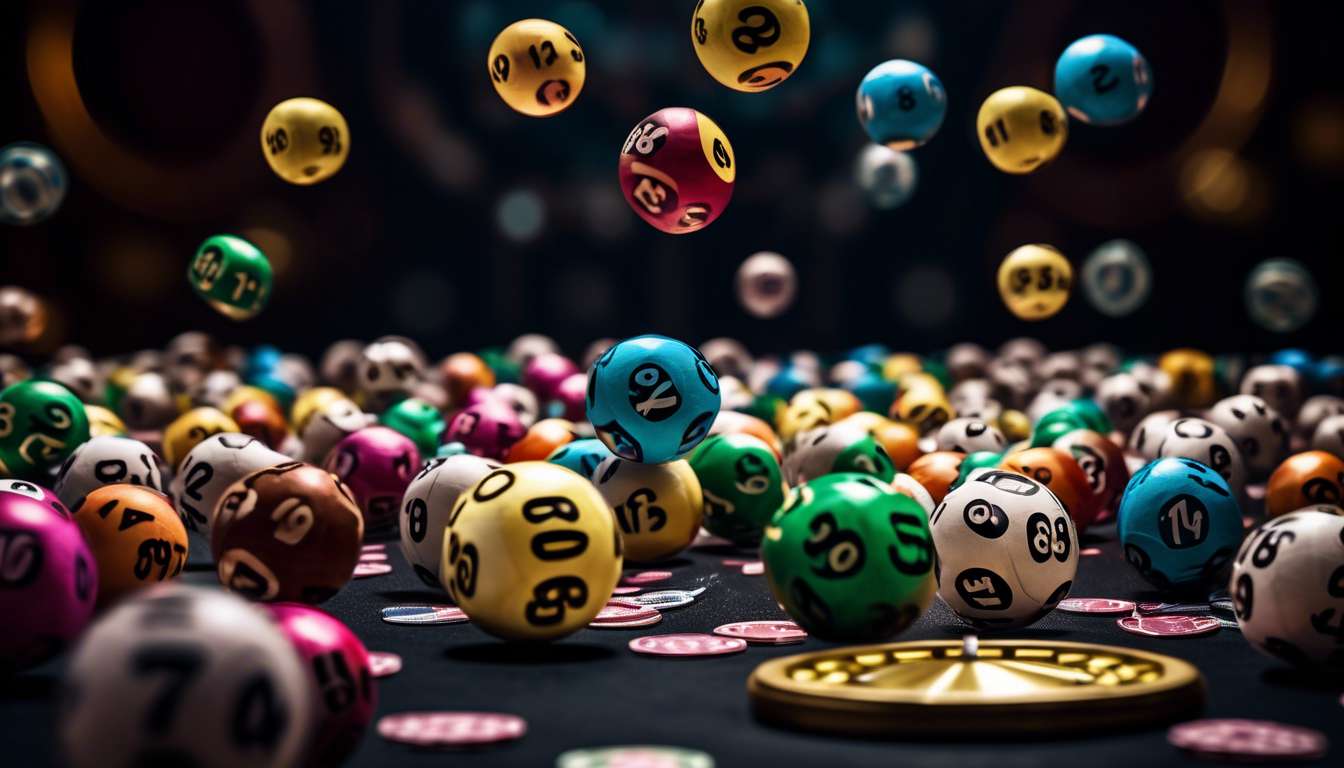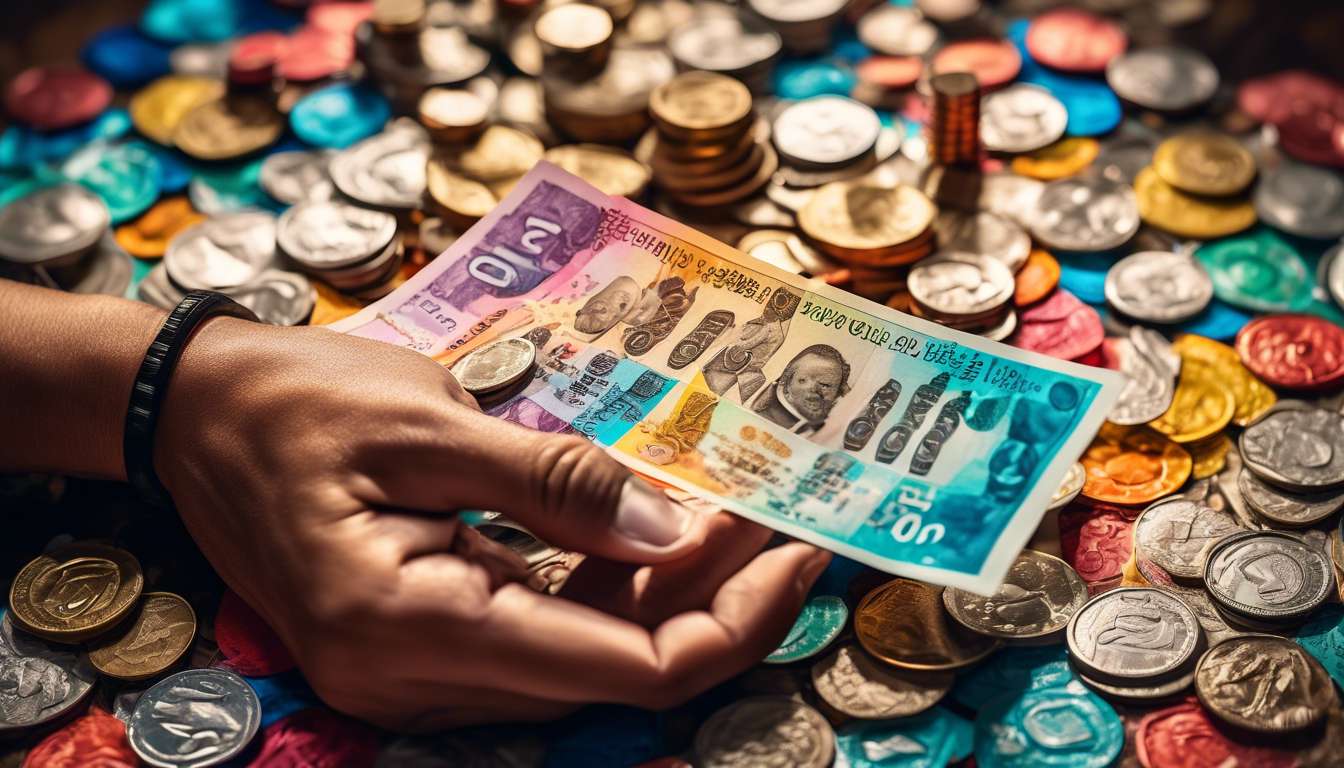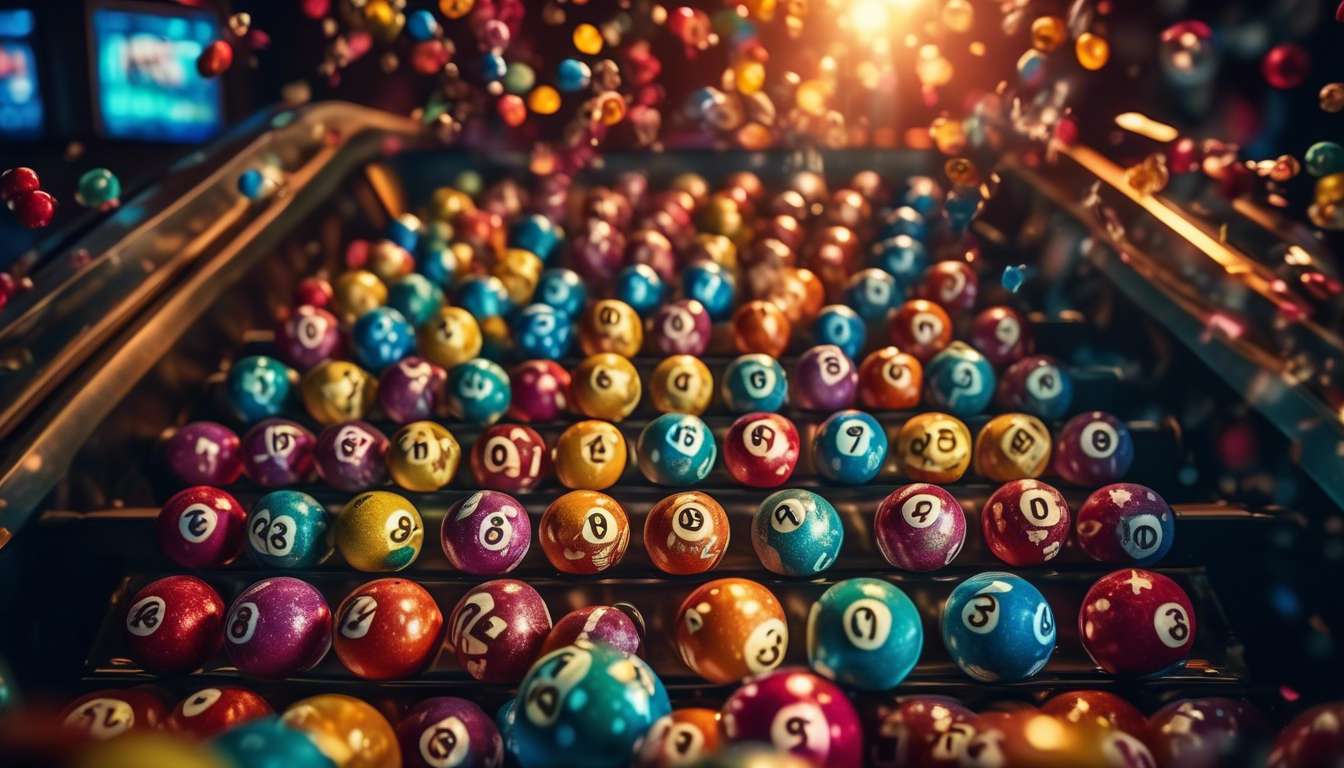We’ve all dreamed about hitting the jackpot, haven’t we? The allure of lottery gambling captures our imaginations with promises of instant wealth and a transformed lifestyle. Yet, while we eagerly purchase our tickets and fantasize about what we would do with the winnings, we often overlook the fascinating statistics that lie beneath the surface of this popular pastime.
As we delve into the world of lottery gambling, we uncover six surprising statistics that challenge our assumptions and offer a deeper understanding of this game of chance.
-
Odds Against Winning: The odds of winning the lottery are often heavily stacked against players, with chances of hitting the jackpot being extremely slim.
-
Annual Spending: A staggering amount of money is spent on lottery tickets each year, reflecting a culture captivated by the hope of winning big.
-
Impact on Lifestyle: Despite the low odds, many people continue to participate in lotteries due to the potential for a life-changing impact.
-
Demographic Insights: Certain demographics are more likely to play the lottery, providing insights into the cultural and economic factors at play.
-
Psychological Motivation: The psychological appeal of lotteries often outweighs the rational understanding of the odds.
-
Economic Implications: The revenue generated from lotteries can have significant economic implications, often used to fund public services and initiatives.
Join us as we explore these unexpected insights, sparking conversations and perhaps even reshaping how we approach our next lottery ticket purchase.
After all, in this game, knowledge might just be our most valuable asset.
Slim Chances of Winning
Many of us dream of hitting the jackpot, but the odds of winning the lottery are incredibly slim. When we gather with friends or family, we often fantasize about that life-changing moment of winning big.
However, the statistics paint a different picture, reminding us of the reality behind our dreams. In the world of gambling, the lottery stands out for its staggering odds. For example, the chances of winning some of the most popular lottery jackpots are often as low as 1 in 292 million.
Despite these daunting numbers, we continue to play, driven by the thrill and the hope of belonging to that exclusive club of winners. There’s something compelling about joining the collective excitement of a lottery draw, even when the statistics suggest our chances are minuscule.
We might rationalize our choices by thinking:
- Someone’s got to win.
- Why not us?
In the end, the allure of the lottery lies in the possibility, however small, of transforming our lives.
Massive Annual Ticket Sales
Every year, millions of us collectively spend billions on lottery tickets, fueling an industry that thrives on our dreams and hopes. It’s incredible to think how this shared ritual connects us, each ticket a symbol of possibility.
The statistics reveal just how massive this industry is—lottery sales in the United States alone surpass $80 billion annually. That’s more than we spend on movies, music, and sports events combined.
We join in this collective gamble, drawn by the allure of transforming our lives overnight. Each ticket purchased is a small investment in that dream, contributing to a pool of hope where we all participate.
As we purchase our weekly tickets, we’re not just engaging in gambling; we’re part of a community that shares in the highs and lows of chance.
These statistics remind us of our unity in the pursuit of dreams, even as we acknowledge the slim odds. Together, we keep the dream alive, one ticket at a time.
Life-Changing Potential
Every ticket holds the potential to transform our lives in an instant, turning dreams into reality with just the right combination of numbers. As we participate in the lottery, the thrill of gambling is more than just a pastime; it’s a gateway to life-changing possibilities.
The statistics reveal that millions of us share this belief, collectively partaking in the hope that we might be the next to experience an extraordinary windfall.
When we buy a ticket, we join a community bound by the shared anticipation of "what if."
- The allure isn’t merely in the jackpot but in the tangible hope of a future redefined.
- These statistics aren’t just numbers; they’re stories of real people who once stood where we stand now, imagining how a lottery win could shift the trajectory of their lives.
In this shared journey, the lottery becomes more than a game. It’s a testament to our collective yearning for that transformative moment when luck meets opportunity.
Demographic Participation Patterns
Lottery Participation Across Diverse Backgrounds
Many people from diverse backgrounds engage in lottery play, illustrating how this form of gambling transcends age, income, and cultural boundaries. Our collective fascination with the lottery is evident in the statistics that show nearly two-thirds of adults participate in some form of lottery gambling annually.
Inclusivity of the Lottery World
By looking at these statistics, we see the inclusivity of the lottery world. It’s a space where we all come together, regardless of our differences, united by the dream of winning big.
Age Diversity
- Participation spans from young adults just entering the workforce to retirees enjoying their golden years.
Income Diversity
- Income doesn’t dictate involvement; both modest earners and high-income individuals are equally drawn to lottery tickets.
Cultural Diversity
- People from various backgrounds partake in this common pastime, making it a universal experience.
Shared Experience
The lottery is not just a game; it’s a shared experience that fosters a sense of belonging among us all.
Psychological Allure Over Logic
Our fascination with winning often overrides logical reasoning, drawing us into the irresistible allure of lottery games. The psychological pull is powerful, making us feel like part of a larger community all chasing the same dream. We’re caught up in the excitement, imagining the life-changing possibilities a lottery win could bring. Despite knowing the statistics are stacked against us, we cling to the hope that we might defy the odds.
As social beings, we find comfort in shared experiences. Joining others in the thrill of gambling, we bond over the anticipation and suspense. The lottery isn’t just about numbers; it’s about the stories we share, the dreams we envision, and the collective excitement that unites us.
Even when logic suggests otherwise, the allure of the jackpot keeps us engaged. Statistics tell a sobering story, yet our shared desire for that magical win keeps us coming back for more. Together, we chase the elusive dream, driven by hope and camaraderie.
Economic Impact of Lotteries
Lotteries generate significant revenue for governments, funding public services and infrastructure projects that benefit us all. When we participate in lottery games, we’re not just gambling for personal gain; we’re contributing to a shared pool of resources that build better communities.
The statistics reveal that lottery revenue is a major player in state budgets, helping to support initiatives that improve our daily lives.
The broader economic impact of lotteries is often overlooked. The funds collected from lottery sales are typically earmarked for critical areas, such as:
- Education
- Health care
- Other essential services
By purchasing a ticket, we’re part of a collective effort that goes beyond individual dreams of jackpot wins.
It’s fascinating to see how our shared interest in lotteries can lead to tangible benefits for society. While gambling might seem like a solitary activity, the statistics show that our combined participation creates a ripple effect, enhancing the quality of life for everyone in our communities.
Public Service Funding Sources
Public service funding comes from various sources, ensuring that essential programs and services meet community needs. Among these sources, the lottery plays a significant role.
When we participate in lottery gambling, many of us might be unaware of how much these activities contribute to public services. Statistics reveal that a substantial portion of lottery revenue is directed towards funding:
- Education
- Health care
- Infrastructure projects
By participating in what seems like a simple game of chance, we collectively support our communities. It’s fascinating to see how our gambling choices, often driven by the dream of striking it rich, actually give back to our society in meaningful ways.
This shared contribution fosters a sense of belonging, as we all become part of a larger effort to improve communal resources.
However, we must remember that while lottery funds do help, they’re just one piece of the funding puzzle. Other sources, including:
- Taxes
- Federal assistance
also play crucial roles in maintaining our public services.
Rethinking Lottery Ticket Purchases
We often find ourselves questioning if our frequent ticket purchases align with our financial priorities and community values. As we dive into lottery gambling statistics, it’s crucial to consider how these numbers impact our choices.
We know the thrill of the lottery is tempting, but let’s remember the odds are rarely in our favor. Statistically, the chances of winning are slim, and these purchases can add up quickly, affecting our budget and savings goals.
Instead of mindlessly buying tickets, we might reframe our approach. What if we used that money to:
- Collaborate on community projects
- Invest in personal development
Our shared experiences and collective contributions can lead to a more fulfilling sense of belonging than the fleeting hope of a lottery win. By rethinking our spending, we foster stronger connections and make more meaningful impacts.
Let’s prioritize actions that align with our values, ensuring our financial habits support not just ourselves, but our entire community.
What are the most common numbers chosen by lottery players?
We often wonder, "What are the most common numbers chosen by lottery players?" It’s a question that piques our curiosity. Many of us believe in lucky numbers, birthdays, or patterns.
However, in reality, lottery numbers are drawn randomly, making each number equally likely to be chosen. Despite our tendencies to choose certain numbers, the odds remain the same for all combinations.
It’s part of the thrill and mystery of playing the lottery.
How do lottery winnings affect the mental health of winners?
Winning the lottery can have a significant impact on mental health. It brings a mix of excitement and stress, leading to various emotions.
Some winners struggle to adjust to sudden wealth, facing pressure and scrutiny. Financial decisions and relationships may become more complex.
Seeking professional guidance and support from loved ones is vital to navigate this new chapter with more ease.
Prioritizing mental well-being amidst the changes is crucial for a balanced outlook.
Are there any successful strategies for increasing lottery odds?
When it comes to increasing lottery odds, there’s no guaranteed strategy. We’ve tried various approaches, such as:
- Pooling money with friends
- Selecting numbers based on meaningful dates
Ultimately, it’s all down to luck.
It’s important to remember that the lottery is a form of entertainment, not a reliable investment. Enjoy playing responsibly and savor the excitement of the game rather than solely focusing on increasing your odds.
Conclusion
As you reflect on the surprising statistics of lottery gambling, remember the slim chances of winning and the massive ticket sales.
Despite the allure of life-changing potential, consider the following:
-
Demographic participation patterns: Different groups engage in lottery gambling at varying rates, often influenced by socio-economic factors.
-
Economic impact of lotteries: Lotteries can both contribute to public funds and disproportionately affect lower-income participants.
Before making your next purchase, rethink the decision and weigh the psychological allure against logic.
Your choices matter, so approach lottery gambling with caution and awareness.




